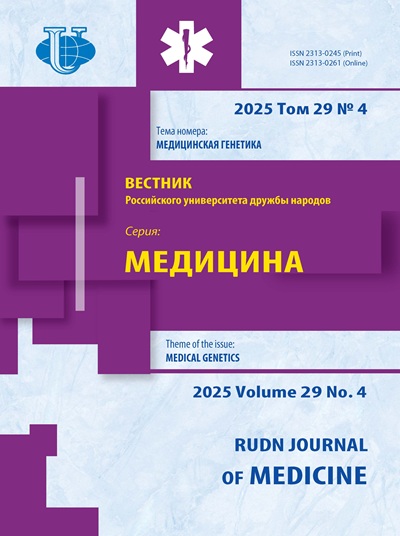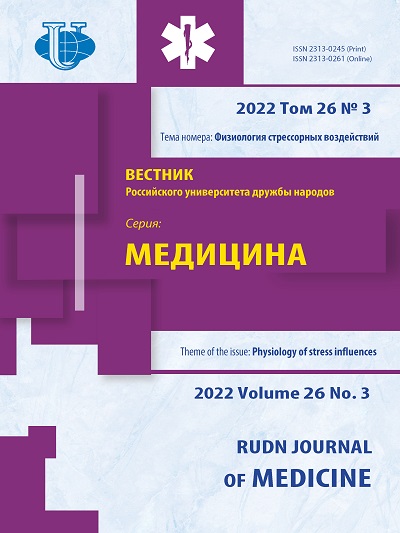Drug dependence analysis in young adults living in Moscow and across Russia for the years 2010-2020
- Authors: Abramov A.Y.1, Koshkina E.A.2, Kicha D.I.1, Alekseyenko A.O.2
-
Affiliations:
- Peoples’ Friendship University of Russia
- Moscow Research and Practical Center on Addictions
- Issue: Vol 26, No 3 (2022): PHYSIOLOGY OF STRESS INFLUENCES
- Pages: 304-315
- Section: SOCIAL HEALTH AND HEALTH PROTECTION
- URL: https://journals.rudn.ru/medicine/article/view/32232
- DOI: https://doi.org/10.22363/2313-0245-2022-26-3-304-315
- ID: 32232
Cite item
Full Text
Abstract
Relevance. A statistical study of drug addiction among young people for 2010-2020 is needed in order to develop recommendations for the treatment of drug addiction. The aim of the research was to analyze trends of substances dependence disorder among adolescents. Materials and Methods. The present research is based on the national statistics data collected and presented in Federal Statistical Monitoring Form № 11 ‘Data on substances dependence disorder cases’; Federal Statistical Monitoring Form № 37 ‘Data on drug and toxic substances (inhalant) addicted adults’, which include estimates about adolescents aged 15-17 who seek addiction treatment initiation at public medical health facilities across Russia and in Moscow. The monitoring period is from 2010 to 2020. All substances dependence disorder morbidity rates were analyzed according to ICD-10 and presented as a breakdown of: drug addiction (dependence) syndrome and health detrimental abuse, first admissions; diagnostic groups, and medical conditions - mental disorders and deviant behaviors caused by drug and non-narcotic psychoactive substances abuse. The data were collected, compiled and Microsoft Office Excel 2016-processed to underlie a database. Results and Discussion. Alcohol and psychoactive substances abuse disorders showed the downward trend, both across Russia and Moscow. Drug abuse disorders showed the decline across Russia, while Moscow saw the same rates growing. Conclusion. The set of the government-backed programs adopted across Russia and in Moscow to fight the spread of adolescent substances dependence disorders delivered a positive result.
About the authors
Alexey Y. Abramov
Peoples’ Friendship University of Russia
Email: antonalekseenko88@gmail.com
ORCID iD: 0000-0001-7178-1260
Moscow, Russian Federation
Evgeniya A. Koshkina
Moscow Research and Practical Center on Addictions
Email: antonalekseenko88@gmail.com
ORCID iD: 0000-0001-7694-8533
Moscow, Russian Federation
Dmitry I. Kicha
Peoples’ Friendship University of Russia
Email: antonalekseenko88@gmail.com
ORCID iD: 0000-0001-6529-372X
Moscow, Russian Federation
Anton O. Alekseyenko
Moscow Research and Practical Center on Addictions
Author for correspondence.
Email: antonalekseenko88@gmail.com
ORCID iD: 0000-0003-1663-617X
Moscow, Russian Federation
References
- Slobodskaya ER. Psikhicheskoe zdorov’e detei i podrostkov: rasprostranennost’ otklonenii i faktory riska i zashchity. Voprosy psikhicheskogo zdorov’ya detei i podrostkov. 2008;8(2):8-21 (in Russian).
- Jane-Llopis EVA, Matytsina I. Mental health and alcohol, drugs and tobacco: a review of the comorbidity between mental disorders and the use of alcohol, tobacco and illicit drugs. Drug and alcohol review. 2006;25(6):515-536.
- Di Forti M, Sallis H, Allegri F, Trotta A, Ferraro L, Stilo SA, Marconi A, La Cascia C, Reis Marques T, Pariante C, Dazzan P, Mondelli V, Paparelli A, Kolliakou A, Prata D, Gaughran F, David AS, Morgan C, Stahl D, Khondoker M, MacCabe JH, Murray RM. Daily use, especially of high-potency cannabis, drives the earlier onset of psychosis in cannabis users. Schizophrenia bulletin. 2014;40(6):1509-1517.
- Oluwabusi OO, Lobach L, Akhtar U, Youngman B, Ambrosini PJ. Synthetic cannabinoid-induced psychosis: two adolescent cases. Journal of child and adolescent psychopharmacology. 2012;22(5):393-395.
- Kardangusheva AM, Ehl’garova LV, Ehl’garov AA. Rasprostranennost’ i mnogoletnie trendy faktorov riska neinfektsionnykh zabolevanii u shkol’nikov 10-17 let. Profilakticheskaya meditsina. 2013;16(6):55-60 (in Russian).
- The United Nations. The Sustainable Development Goals. https://www.un.org/sustainabledevelopment/health/ (accessed 14.07.2022)
- Prezident Rossii. Ukaz ob utverzhdenii Strategii gosudarstvennoi antinarkoticheskoi politiki Rossiiskoi Federatsii na period do 2030 goda. http://www.kremlin.ru/acts/news/64480 (accessed 14.07.2022) (in Russian).
- Klimenko TV, Kozlov AA. Global preventive space as a mechanism for preventing non-medical use of psychoactive substances and creating a healthy lifestyle. Voprosy narkologii. 2021;(3):7-18. (in Russian). doi: 10.47877/0234-0623_2021_03_7
- Pravitel’stvo Rossii. Rasporyazhenie Pravitel’stva Rossiiskoi Federatsii ot 30.12.2009 g. № 2128-r. http://government.ru/docs/all/71034/ (accessed 14.07.2022) (in Russian).
- Pravitel’stvo Rossii. Ukaz Prezidenta Rossiiskoi Federatsii ot 09.06.2010 g. № 690. http://government.ru/docs/all/72736/ (accessed 14.07.2022) (in Russian).
Supplementary files















